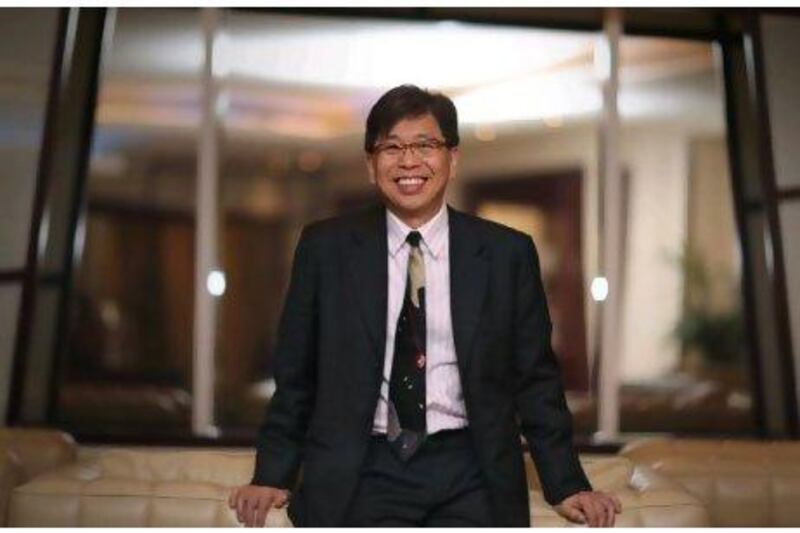A UAE-operated database that catalogues the region's genetic disorders was one of the largest and most comprehensive in the world, the president of the Human Genome Organisation (Hugo) said during a visit to Dubai.
Professor Edison Liu was finalising plans to hold a world conference on human genomic studies at Dubai World Trade Centre in March. It is the first time the annual conference will take place in the Middle East in its 15-year history.
Efforts by the Dubai-based Centre for Arab Genomic Studies (Cags) to document gene disorders "is very unique not only to the Middle East, but in the world", said Prof Liu, who is also the executive director of the Genome Institute of Singapore.
"It is perhaps the only database of sufficient richness to help us navigate the pockets of recessive disorders, and the contributions that Cags is making is incredibly important to science."
The project is meant to give Arab science groups access to data drawn from published research and mined hospital records, as well as the ability to contribute to detailed annotation of human genes.
Inherited genetic defects are prominent in the UAE and other parts of the region due to marriages between blood relatives, and often lead to cancers, cardiac diseases and blood disorders such as thalassaemia.
There were more than 900 genetic disorders and an unprecedented level of genome variabilities, or mutations, said Dr Ghazi Tadmouri, the assistant director of Cags. Many "remain not understood at the genetic level", he said.
The annual conference, called the Human Genome Meeting, is an opportunity to present findings to the rest of the world and "emphasise the development and potential of scientific research and capabilities of the Arab World", he said.
About 1,500 physicians and geneticists are expected to attend, as well as 40 keynote speakers from around the world.
"Having this conference here is a big deal in that it will help spread knowledge about the background and diagnosis of genetics, and get attention from scientists and authorities around the world," said Prof Najuib al Khaja, the president of Cags.
Cags, funded by the Sheikh Hamdan bin Rashid Award for Medical Sciences, and Hugo began collaborating in 2006 when a delegate of the Hugo Council contributed to the first Pan Arab Human Genetics Conference in Dubai.
Hugo played a large role in the Human Genome Project, an international effort to identify and map genes in human DNA to revolutionise the diagnosis, prevention and treatment of serious diseases.
Since then, researchers have concentrated on deciphering the functions of the 25,000 genes and the impact of human genome variations among individuals.
The Cags Catalogue of Transmission Genetics in Arabs "co-ordinates the efforts of different countries that have historically been so competitive with each other", Prof Liu said.
"I wouldn't be surprised if, in three to five years from now, one of the world's genomic institutions with the most firepower is in this region."
Cags was created in 2003 to educate the public and the healthcare community about the benefits of early genetic diagnosis, as well as the dangers related to inter-family marriage and the trend of having more children later in life.
The region's history of marriage between relatives "is critical to understand when looking at the function of genes and the complexity of recessive disorders", Prof Liu said.
"The view is that science in the Middle East is an emerging source of creativity and strength, and having access to the information being provided will help eliminate blind spots for a better look at the breadth and spectrum of the human species."






